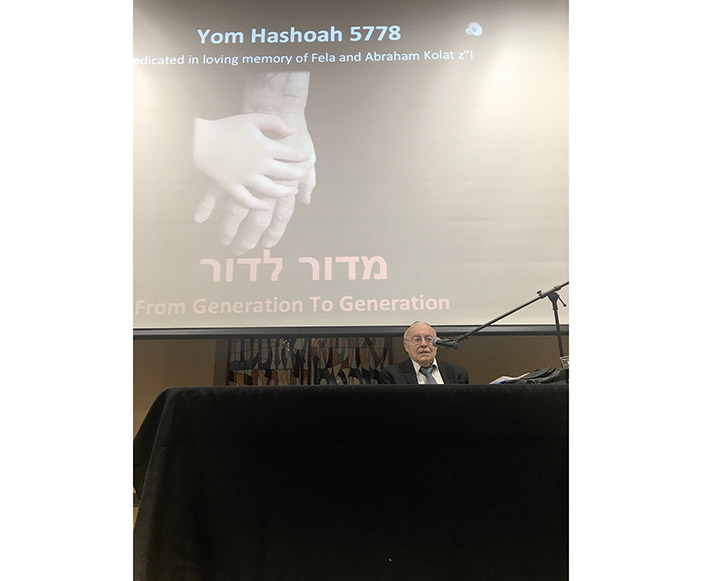


In preparation for commemorating Yom HaShoah, Yeshivat Frisch students heard a powerful story of survival and faith in the face of horror on April 11 from Rabbi Yakov Jungreis, older brother of Rebbetzin Esther Jungreis a”h. Rabbi Jungreis (then aged 11) and his family survived the Holocaust as part of the group of 1800 Jews who were put on the Kasztner train out of Hungary to Switzerland and eventually moved to the United States after the war.
In his recollections, Jungreis emphasized the tremendous mesirut nefesh and bitachon of members of his community during the years of Nazi persecution, from arranging a clandestine bris milah just as the Nazis invaded Hungary—miraculously, the baby survived the war—to bartering hundreds of pieces of precious bread for a shofar during High Holidays services in a concentration camp. Jungreis also spoke about the special significance of the founding of the State of Israel three years after the war; he said that he recites a bracha every time he sees an El Al airplane, because it is a sight he once would have believed impossible.
The next day, on April 12, the entire Frisch community gathered to commemorate Yom HaShoah. Six candles were lit to remember the six million Jewish lives extinguished by the Nazis and their collaborators, and students saw images from the time of the Shoah and watched a speech by former Ashkenazi Chief Rabbi of Israel Yisrael Meir Lau about his own story of survival and an incredible, unlikely post-war meeting with a fellow survivor from the same hiding spot.
Over the course of these two assemblies, Frisch Principal Rabbi Eli Ciner, Associate Principal Rabbi Joshua Wald, and Assistant Principal Rabbi David Goldfischer shared some of the ways the Shoah impacted their own families and personal development, and exhorted the students to think about how they will commit themselves to carrying the memory of the six million kedoshim forward. Students were encouraged to learn about the victims and study in their memory, while continuing to grow in empathy, kindness, and spirituality.
The tekes concluded with “Kel Malei Rachamim” and Mincha.










